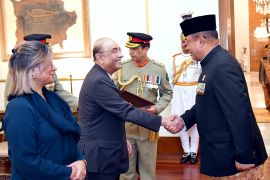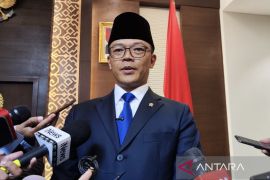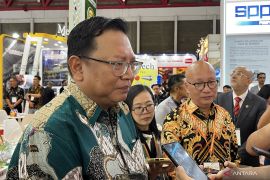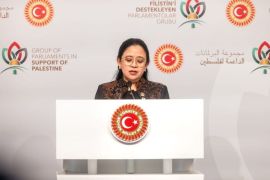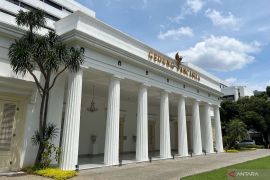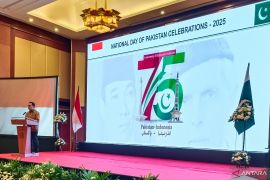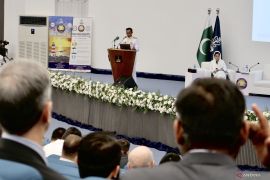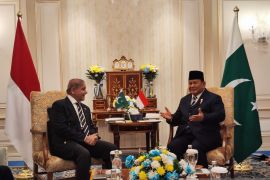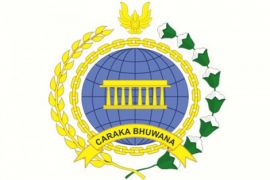Speaking in Pakistan`s lower house, the National Assembly, after meeting US House Speaker John Boehner in Islamabad, Gilani said: "I told him that you will have to respect our political and military efforts if you want to succeed" in the war on terror.
Boehner, who was leading a six-member congressional delegation on a two-day visit, also met Pakistan army chief General Ashfaq Kayani and US Ambassador Cameron Munter.
"I told him that the US should transfer drone technology to Pakistan if it is really against militants," he said in the televised address to the house, without elaborating on what this might entail.
Later, a statement issued by the Prime Minister`s office quoted Gilani as saying that the US should refrain from drone attacks and instead share credible intelligence to enable Pakistan to take action against terrorists itself.
The drone strikes inflame anti-US feeling, which is running high after recent White House criticism of Pakistan`s efforts to defeat the Taliban in the tribal belt on the Afghan border.
Relations between Islamabad and Washington worsened to a near collapse over a row that erupted when CIA officer Raymond Davis shot and killed two men who tried to rob him in January.
Missile attacks doubled in the area last year, with more than 100 drone strikes killing over 670 people in 2010 compared with 45 strikes that killed 420 in 2009, according to an AFP tally.
Most have been concentrated in North Waziristan, the most notorious Afghan Taliban and Al-Qaeda bastion in Pakistan, where the United States wants the Pakistan military to launch a ground offensive as soon as possible.
Pakistan says its troops are too overstretched to launch such an assault.
The New York Times reported last week that Pakistan told the United States to rein in drone strikes and slash the number of CIA agents and special forces operating in the conservative, nuclear-armed Muslim country.
"This is our war and we will fight our own enemy," Gilani said.
"We are the frontline state. We are facing a difficult situation," he said Monday, adding that he told Boehner that stability in Pakistan and Afghanistan "will ensure stability in the entire world."
"A strong US-Pakistan relationship is vital to the interests of both of our countries," Boehner, the top Republican in the US Congress and third-ranking US elected official, said in a statement released by his office in Washington.
"While the relationship between our two countries has seen its challenges, we discussed the importance of working through these issues and renewing our partnership based on mutual interests and mutual respect."
Boehner, who is second in line for the US presidency behind Vice President Joe Biden, said he and five other US lawmakers had "frank and productive discussions" with top civilian and military officials.
"We recognize that the Pakistani military and the Pakistani people have made great sacrifices in recent years in the struggle against extremism and terrorism," he said.
"Al-Qaeda and its extremist allies have made Pakistan a target, and the Pakistani nation has suffered deeply as a result. We appreciate the efforts of the Pakistani military and the sacrifices of those troops and the Pakistani people."
The delegation included Republican Representatives Mac Thornberry, Mike Conaway, Tom Rooney and Joe Heck -- all members of the House Armed Services Committee -- and Democratic Representative Dan Boren, a member of the House Intelligence Committee. (*)
Editor: Kunto Wibisono
Copyright © ANTARA 2011

